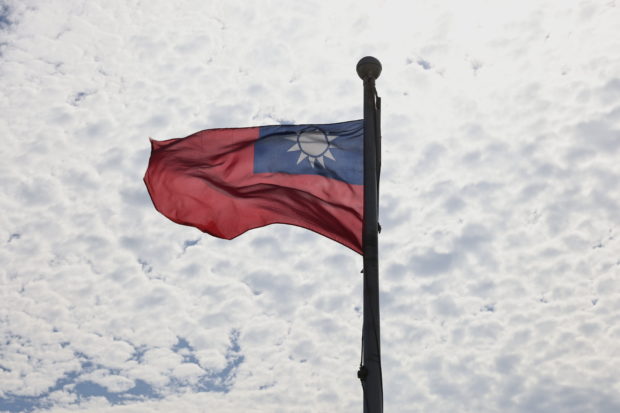
A Taiwanese flag flaps in the wind in Taoyuan, Taiwan, June 30, 2021. REUTERS FILE PHOTO
TAIPEI — Taiwan would not collapse like Afghanistan in the event of an attack, Premier Su Tseng-chang said on Tuesday, offering an indirect warning to powerful neighbor China not to be “deluded” into thinking it could take the island.
China, which claims democratically governed Taiwan as its own territory, has been ramping up military and diplomatic pressure to force Taipei into accepting Chinese sovereignty, causing concern in Washington and other Western capitals.
The defeat of the Afghan government after the withdrawal of U.S. forces and flight of the president has sparked discussion in Taiwan about what would happen in the event of a Chinese invasion, and whether the United States would help defend Taiwan.
Asked whether the president or premier would flee if “the enemy was at the gates” like in Afghanistan, Su said people had feared neither arrest nor death when Taiwan was a dictatorship under martial law.
“Today, there are powerful countries that want to swallow up Taiwan using force, and likewise we are also not afraid of being killed or imprisoned,” he said. “We must guard this country and this land, and not be like certain people who always talk up the enemy’s prestige and talk down our resolve.”
What happened in Afghanistan showed that if a country is in internal chaos no outside help will make a difference, and Taiwanese have to believe in their land and that they can defend it, Su added.
Everyone working together to rapidly bring under control a recent domestic spike in COVID-19 infections showed what can be achieved when Taiwan is united, he said.
“We also tell foreign forces who want to invade and grab Taiwan – don’t be deluded,” Su added, referring to China.
The United States, like most countries, has no official diplomatic ties with Taiwan, but is its most important international supporter and arms supplier.
However there have long been concerns in Taiwan that in the event of a Chinese attack the United States would either be unwilling on unable to come to the island’s aid.
President Tsai Ing-wen is overseeing an ambitious military modernization program to bolster the domestic arms industry and make Taiwan a “porcupine” equipped with advanced, highly mobile weapons to make a Chinese invasion as difficult as possible.